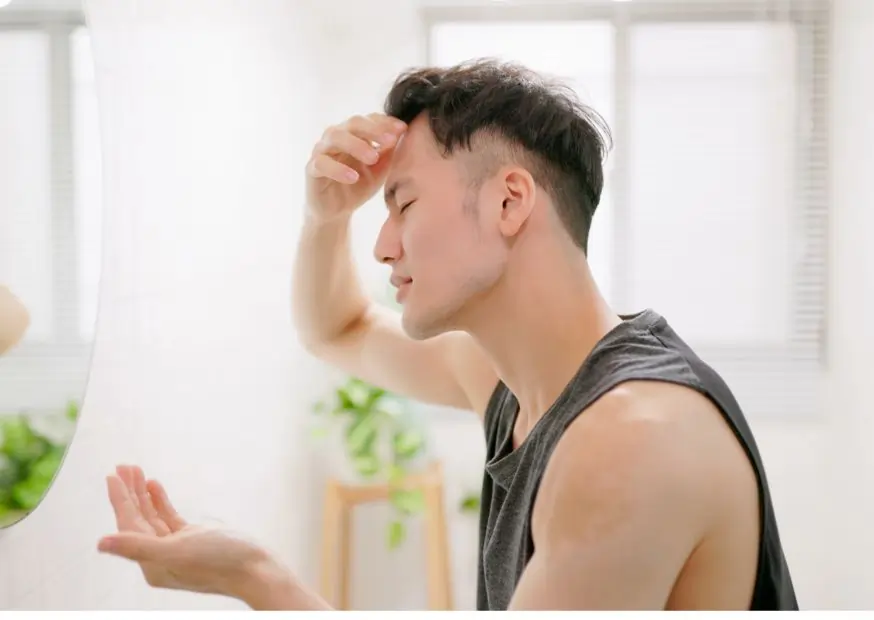Vitamin D is an essential nutrient that plays a crucial role in maintaining healthy bones and teeth. It also has various other health benefits, including reducing the risk of certain diseases such as heart disease and diabetes. However, recent studies have suggested that vitamin D may also have an impact on hair health. There is evidence to suggest that a deficiency in vitamin D may contribute to hair loss, particularly in women.
Vitamin D receptors are found in hair follicles, and it is believed that the nutrient may be important for maintaining the growth and health of hair. In this article, we will explore the relationship between vitamin D and hair loss in more detail.
What is Vitamin D?
Most individuals are aware that vitamin D can be synthesized in the body through exposure to sunlight. This is why physicians frequently recommend getting some sunlight each day. However, sunlight is not the sole way to obtain vitamin D.
The two primary forms of vitamin D, vitamin D2 and vitamin D3, can be acquired through various foods. Nevertheless, these foods alone cannot be relied upon to be our primary source of vitamin D because we frequently consume insufficient amounts of these foods. To address this issue, certain foods like milk, cereal, and some orange juices are fortified with vitamin D2 and vitamin D3.
Recent research has revealed that vitamin D is crucial for overall health, and that many individuals may be deficient in it without realizing it. This has led to increased awareness and attention from medical experts.
Vitamin D is a nutrient that supports various functions of the body, including mental and physical health. While it is commonly referred to as the “sunshine vitamin” because it is produced by the skin in response to sunlight, it is actually a hormone. Vitamin D is a fat-soluble vitamin that is absorbed along with dietary fat and stored in the liver and fatty tissues of the body. Its most critical role is in facilitating the absorption of calcium and phosphorus, which are essential for bone development.
Vitamin D and Hair Loss: Understanding Vitamin D Cofactors
Vitamin D is a crucial compound that plays a vital role in the body’s biological functions. However, to function effectively, vitamin D requires several cofactors, including magnesium, calcium, omega 3, boron, zinc, and vitamins A, K2, and D.
Among these cofactors, magnesium is perhaps the most critical. It facilitates the binding of vitamin D to transport proteins, enabling it to be delivered to the tissues. Magnesium is synergistic with vitamin D3 and can increase its benefits by up to 30%.
K2 is another vital component that works with vitamin D in the metabolism of calcium, promoting its deposition in the teeth and bones instead of blood vessels. Adequate levels of vitamin K2 are essential for proper bone mineralization, which can help reduce hair loss.
Food sources rich in vitamin K2 include fermented dairy products, such as cheese, spinach, brussel sprouts, and kale salad. Beef liver is also an excellent source, containing 11 mg of vitamin K2 per 100 grams. Many food supplements already combine vitamin D3 and K2 to support healthy hair growth and prevent hair loss.

Preventing Hair Loss: The Role of Vitamin D
Keratinocytes, the cells responsible for producing the protein keratin in your skin, nails, and hair, benefit greatly from vitamin D. This essential nutrient promotes the development and reproduction of keratinocytes, making it a vital component in the fight against hair loss.
Vitamin D is known for its anti-inflammatory and immunomodulatory properties, which can help both men and women prevent hair loss. If bodily inflammation, viral infections, or post-COVID-19 hair loss are causing your hair loss, taking vitamin D supplements can make a significant difference.
Moreover, studies have established a correlation between successful topically applied vitamin D treatments and androgenetic alopecia (AGA), alopecia areata, and low blood vitamin D levels. Thus, incorporating vitamin D into your hair care routine may help combat hair loss and promote healthy hair growth.
If you’re suffering from hair loss and would like to know more about treatment options at different clinics, please do not miss our hair transplant Turkey reviews.
Other Health Benefits of Vitamin D
The health benefits of vitamin D are numerous and varied. Supporting more than 2,000 genes in the human body, vitamin D is crucial for maintaining ideal levels to prevent the onset of more than 200 diseases. One of its primary functions is to aid in bone health maintenance by assisting in the absorption of calcium and phosphorus, which strengthens teeth and skeletal structures. Vitamin D also supports the immune system, helping to resist infection and stimulating immune cells to recognize and destroy cancerous cells.
Additionally, vitamin D has been found to reduce stress and depression by regulating dopamine levels in the brain. It can also enhance mood and help with weight loss by acting as an appetite suppressant. Vitamin D is also essential in:
- Regulating blood sugar levels
- Lowering blood pressure
- Preventing cancer
- Supporting a healthy heart
Finally, it plays a significant role in maintaining libido by regulating the production of oestrogen and testosterone and promoting the production of serotonin, leading to greater sexual desire.
Vitamin D and Hair Loss Supplements
Many people are deficient in vitamin D due to various reasons such as limited sun exposure, poor diet, and medical conditions. In such cases, supplements can be used to increase vitamin D levels in the body.
Vitamin D supplements come in two forms: vitamin D2 (ergocalciferol) and vitamin D3 (cholecalciferol). Vitamin D3 is considered to be more effective than vitamin D2 in raising vitamin D levels in the body. Vitamin D supplements are available in various forms, such as capsules, tablets, and liquid drops.
Here is our current top 3 supplements with Vitamin D for a healthier hair:
- Aime Hair & Scalp Boost – Food Supplements
- IdealofMeD Hair Rejuvenation Vitamins
- 3 More Inches Hair And Nail Supplement
The dosage of vitamin D supplements depends on various factors such as age, weight, and medical conditions. It is essential to consult with a healthcare professional before taking any vitamin D supplements.

